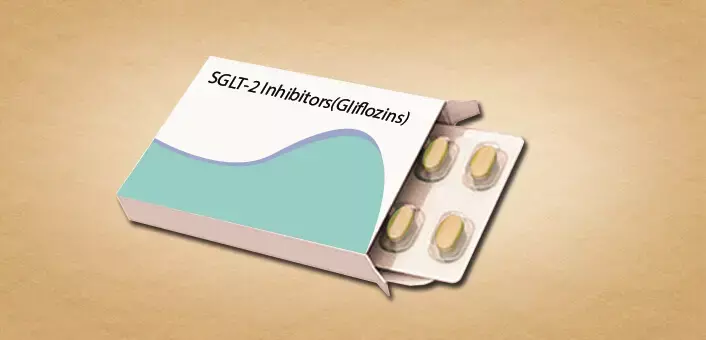- Home
- Medical news & Guidelines
- Anesthesiology
- Cardiology and CTVS
- Critical Care
- Dentistry
- Dermatology
- Diabetes and Endocrinology
- ENT
- Gastroenterology
- Medicine
- Nephrology
- Neurology
- Obstretics-Gynaecology
- Oncology
- Ophthalmology
- Orthopaedics
- Pediatrics-Neonatology
- Psychiatry
- Pulmonology
- Radiology
- Surgery
- Urology
- Laboratory Medicine
- Diet
- Nursing
- Paramedical
- Physiotherapy
- Health news
- Fact Check
- Bone Health Fact Check
- Brain Health Fact Check
- Cancer Related Fact Check
- Child Care Fact Check
- Dental and oral health fact check
- Diabetes and metabolic health fact check
- Diet and Nutrition Fact Check
- Eye and ENT Care Fact Check
- Fitness fact check
- Gut health fact check
- Heart health fact check
- Kidney health fact check
- Medical education fact check
- Men's health fact check
- Respiratory fact check
- Skin and hair care fact check
- Vaccine and Immunization fact check
- Women's health fact check
- AYUSH
- State News
- Andaman and Nicobar Islands
- Andhra Pradesh
- Arunachal Pradesh
- Assam
- Bihar
- Chandigarh
- Chattisgarh
- Dadra and Nagar Haveli
- Daman and Diu
- Delhi
- Goa
- Gujarat
- Haryana
- Himachal Pradesh
- Jammu & Kashmir
- Jharkhand
- Karnataka
- Kerala
- Ladakh
- Lakshadweep
- Madhya Pradesh
- Maharashtra
- Manipur
- Meghalaya
- Mizoram
- Nagaland
- Odisha
- Puducherry
- Punjab
- Rajasthan
- Sikkim
- Tamil Nadu
- Telangana
- Tripura
- Uttar Pradesh
- Uttrakhand
- West Bengal
- Medical Education
- Industry
SGLT2 inhibitors exhibit enhanced cardioprotective effect in obese or overweight patients

USA: The cardioprotective effect associated with sodium-glucose cotransporter-2 inhibitor (SGLT2i) compared with dipeptidyl peptidase-4 inhibitors (DPP-4i) is stronger in patients with higher body mass index (BMI), according to real-world data published in Diabetes Research and Clinical Practice.
"We found that the use of SGLT2 inhibitor is associated with decreased mortality and cardiovascular outcomes versus DPP-4 inhibitors; the greater benefit was seen in those with obesity/severe obesity," the researchers wrote in their study.
Obesity may alter the efficacy of drugs having lipophilic properties, and SGLT2 inhibitors are liposoluble. No previous study has sought to assess the effect of obesity on the cardiovascular effects of SGLT2 inhibitors in clinical practice. Considering this, Karine Suissa, Harvard Medical School, Boston, MA, United States, and colleagues aimed to assess the association between SGLT2i use and cardiovascular outcomes and death as a function of obesity among type 2 diabetes patients.
For this new-user, active-comparator cohort study, the researchers used U.K.'s Clinical Practice Research Datalink linked to the Hospital Episodes Statistics repository and Office for National Statistics. 34,128 new users of SGLT2i were matched in the ratio of 1:1 to 128 new users of DPP4 inhibitors on BMI and propensity score.
Hazard ratios (HRs) of major adverse cardiovascular events (MACE), overall and in body mass index (BMI) categories (≤24.9 kg/m2, 25.0-29.9 kg/m2, 30.0-39.9 kg/m2, ≥40 kg/m2) were estimated. Secondary outcomes were hospitalization for heart failure and all-cause mortality.
The study demonstrated the following findings:
The study revealed the following results:
- SGLT2is was associated with decreased major adverse cardiovascular event (MACE) risk (H.R., 0.78) vs. DPP-4is.
- MACE risk was lower for SGLT2is among those underweight/normal (H.R., 0.54) vs. DPP-4is.
- No difference in MACE risk for overweight individuals (HR, 0.94).
- The risk was lower for SGLT2is among those with obesity (H.R., 0.77) and severe obesity (H.R., 0.67).
- Similar patterns were observed for cardiovascular and all-cause mortality and heart failure but not for myocardial infarction or stroke—similar findings by age, sex, cardiovascular disease history, and SGLT2i type.
To conclude, SGLT2 inhibitors were linked with a decreased risk of MACE compared to DPP4 inhibitors. This reduced risk was most marked among obese and severely obese patients but not among overweight patients. Similar patterns were seen for heart failure, cardiovascular mortality, and all-cause mortality.
"Compared with DPP-4 inhibitors, the cardioprotective effect associated with SGLT2 inhibitors is stronger among patients with higher BMI," the researchers wrote.
Reference:
Suissa K, Schneeweiss S, Douros A, Yin H, Patorno E, Azoulay L. Obesity as a modifier of the cardiovascular effectiveness of sodium-glucose cotransporter-2 inhibitors in type 2 diabetes. Diabetes Res Clin Pract. 2022 Sep 24;192:110094. doi: 10.1016/j.diabres.2022.110094. Epub ahead of print. PMID: 36167266.
Dr Kartikeya Kohli is an Internal Medicine Consultant at Sitaram Bhartia Hospital in Delhi with super speciality training in Nephrology. He has worked with various eminent hospitals like Indraprastha Apollo Hospital, Sir Gangaram Hospital. He holds an MBBS from Kasturba Medical College Manipal, DNB Internal Medicine, Post Graduate Diploma in Clinical Research and Business Development, Fellow DNB Nephrology, MRCP and ECFMG Certification. He has been closely associated with India Medical Association South Delhi Branch and Delhi Medical Association and has been organising continuing medical education programs on their behalf from time to time. Further he has been contributing medical articles for their newsletters as well. He is also associated with electronic media and TV for conduction and presentation of health programs. He has been associated with Medical Dialogues for last 3 years and contributing articles on regular basis.
Dr Kamal Kant Kohli-MBBS, DTCD- a chest specialist with more than 30 years of practice and a flair for writing clinical articles, Dr Kamal Kant Kohli joined Medical Dialogues as a Chief Editor of Medical News. Besides writing articles, as an editor, he proofreads and verifies all the medical content published on Medical Dialogues including those coming from journals, studies,medical conferences,guidelines etc. Email: drkohli@medicaldialogues.in. Contact no. 011-43720751


